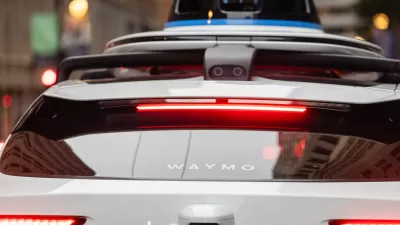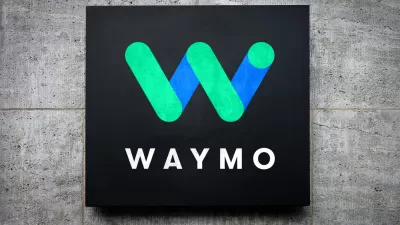With driverless cars poised to appear in the not-too-distant future, planners and engineers are beginning to envision the effect on the urban landscape and the spaces within cars themselves. Nick Bilton shares some of the predictions.
"While driverless cars might still seem like science fiction outside the [Silicon] Valley, the people working and thinking about these technologies are starting to ask what these autos could mean for the city of the future," writes Bilton. "The short answer is 'a lot.'"
"Inner-city parking lots could become parks. Traffic lights could be less common because hidden sensors in cars and streets coordinate traffic. And, yes, parking tickets could become a rarity since cars would be smart enough to know where they are not supposed to be."
"As scientists and car companies forge ahead — many expect self-driving cars to become commonplace in the next decade — researchers, city planners and engineers are contemplating how city spaces could change if our cars start doing the driving for us. There are risks, of course: People might be more open to a longer daily commute, leading to even more urban sprawl."
While some are more circumspect, others envision massive change. “'What automation is going to allow is repurposing, both of spaces in cities, and of the car itself,' said Ryan Calo, an assistant professor at the University of Washington School of Law, who specializes in robotics and drones."
FULL STORY: Disruptions: How Driverless Cars Could Reshape Cities

Planetizen Federal Action Tracker
A weekly monitor of how Trump’s orders and actions are impacting planners and planning in America.

Congressman Proposes Bill to Rename DC Metro “Trump Train”
The Make Autorail Great Again Act would withhold federal funding to the system until the Washington Metropolitan Area Transit Authority (WMATA), rebrands as the Washington Metropolitan Authority for Greater Access (WMAGA).

The Simple Legislative Tool Transforming Vacant Downtowns
In California, Michigan and Georgia, an easy win is bringing dollars — and delight — back to city centers.

The States Losing Rural Delivery Rooms at an Alarming Pace
In some states, as few as 9% of rural hospitals still deliver babies. As a result, rising pre-term births, no adequate pre-term care and harrowing close calls are a growing reality.

The Small South Asian Republic Going all in on EVs
Thanks to one simple policy change less than five years ago, 65% of new cars in this Himalayan country are now electric.

DC Backpedals on Bike Lane Protection, Swaps Barriers for Paint
Citing aesthetic concerns, the city is removing the concrete barriers and flexposts that once separated Arizona Avenue cyclists from motor vehicles.
Urban Design for Planners 1: Software Tools
This six-course series explores essential urban design concepts using open source software and equips planners with the tools they need to participate fully in the urban design process.
Planning for Universal Design
Learn the tools for implementing Universal Design in planning regulations.
Smith Gee Studio
City of Charlotte
City of Camden Redevelopment Agency
City of Astoria
Transportation Research & Education Center (TREC) at Portland State University
US High Speed Rail Association
City of Camden Redevelopment Agency
Municipality of Princeton (NJ)





























